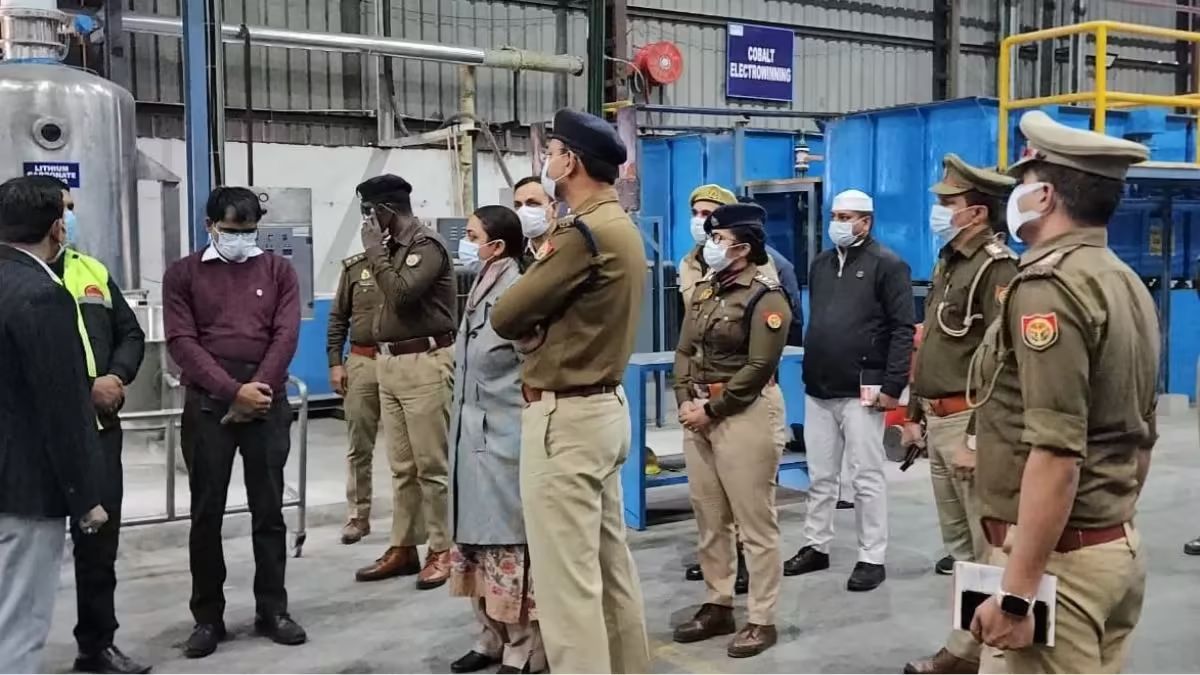Tragedy Strikes Lithium Battery Recycling Plant: Two Workers Dead, One Critical
In a shocking incident that highlights the potential dangers of lithium battery recycling, two workers tragically lost their lives and one sustained critical injuries after being exposed to toxic gas at a factory in Bulandshahr, India. This heartbreaking accident underscores the urgent need for stricter safety regulations and improved worker protection measures in this rapidly growing industry. The incident, which occurred at the Betex Energies Beyond Limitations factory, has sparked outrage and protests from villagers, raising serious concerns about workplace safety and corporate responsibility. Read on to uncover the details of this devastating event and its ongoing implications.
The Deadly Accident: A Timeline of Tragedy
The incident unfolded on Monday morning around 9:00 am. Three workers—Satyendra (26), Ankush Chauhan (28), and Girish (28)—were reportedly exposed to a gas released during the mixing of chemical powders. They immediately fell unconscious, causing widespread panic within the factory. Emergency services were called, and the workers were rushed to a local hospital, eventually transferred to Fortis Hospital in Greater Noida due to the severity of their conditions. Tragically, Satyendra and Ankush succumbed to their injuries during treatment, while Girish remains in critical condition. The speed at which this tragedy unfolded is both alarming and speaks volumes about the inadequate safety measures seemingly in place at the facility.
The Immediate Aftermath and Initial Response
Following the accident, the factory management faced harsh criticism for its delayed notification of victims' families. Satyendra's family alleged that they were kept in the dark for nearly five hours after the incident. This egregious oversight and lack of communication exacerbated an already tragic situation. The apparent failure to immediately inform affected families also fuelled public anger and resentment.
Outrage and Protest: Villagers Demand Accountability
The delayed notification and perceived cover-up attempts fueled widespread anger amongst the villagers. They gathered at the factory gate, staging a significant protest. Their demands included the immediate presence of the factory owner and compensation of one crore rupees for the victims' families. The incident has exposed not only the flaws within the safety protocols at the factory but also raises larger questions of how authorities oversee these operations and protect the rights of the workers involved. The level of outrage from the local community reflects widespread concern regarding these types of incidents.
Official Intervention and Ongoing Investigation
Responding to the developing crisis, top officials including the District Magistrate (DM), Senior Superintendent of Police (SSP), and other administrators reached the scene to assess the situation and begin an investigation. Preliminary investigations suggest that the release of toxic gas may have been a result of manual mixing of unidentified chemical powders. Further analysis will be conducted by experts to identify the exact substance, determining precisely what went wrong and what needs to happen to prevent future accidents from taking place.
The Urgent Need for Reform in the Lithium Battery Industry
This tragic accident shines a glaring spotlight on the dangers within the rapidly expanding lithium-ion battery recycling industry. While this technology holds enormous potential for sustainability and economic growth, it is also inherently risky if safety measures are not strictly enforced. The accident calls into question not only the safety protocols implemented at this factory but also questions about wider industrial safety regulations for battery recycling factories across India. It is crucial to learn from this incident and create industry-wide safety standards to reduce incidents of this nature, thereby reducing potential risk and protecting employees involved.
What Next for Lithium Battery Safety in India?
The government will certainly now conduct comprehensive review of current industrial safety standards, and it would be expected for the standards to undergo urgent improvement and greater scrutiny of factory operations in the sector. Enhanced worker safety guidelines must take precedent. Moreover, it's also likely to trigger stricter enforcement of existing regulations across India. This incident is an unfortunate reality check; stronger regulations and safety protocols across the board, backed up by strong governmental monitoring, must now become top priorities for government regulators.
Take Away Points
- Two workers died and one remains critically injured after a gas leak at a lithium-ion battery recycling plant.
- The incident has highlighted critical gaps in safety standards and corporate responsibility in the industry.
- Villagers protested, demanding accountability and financial assistance for victims' families.
- Official investigations are underway to determine the cause and prevent future incidents.
- The tragedy underscores the need for stringent safety protocols and heightened regulatory oversight in the lithium battery recycling sector.




